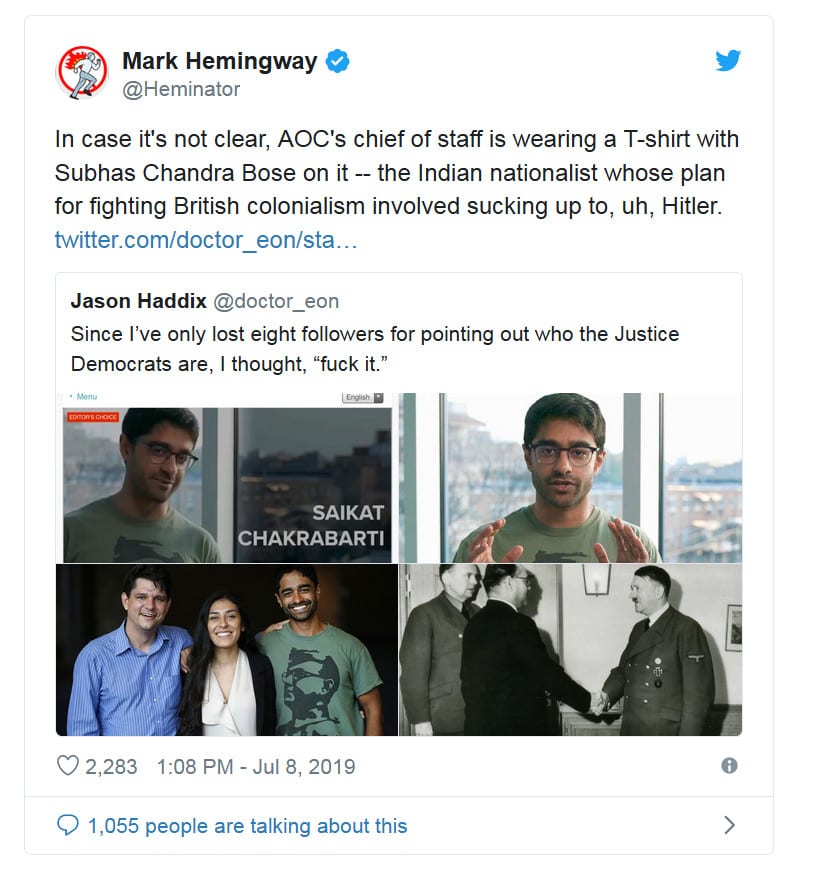WELL, THAT’S JUST WHAT SKYNET WOULD WANT YOU TO BELIEVE, ISN’T IT? Michael Strain: The Case for AI Optimism.
Even if we had a clear sense of the potential reach of AI, we would need to be careful about projecting the character of its effects.
Here, too, the examples of recent technological changes are instructive. As noted above, the digital revolution meant that ATMs could execute the core functions of a 1970s-era bank teller — taking deposits, dispensing cash, etc. — with more precision and at less expense than a human employee. As a result, banks shifted those functions from tellers to machines. But as the technology scholar James Bessen has demonstrated, this did not lead to a large reduction in the number of bank tellers. In 1990, there were around 100,000 ATMs and 500,000 bank tellers in the United States. In 2010, there were about 400,000 ATMs and just under 600,000 bank tellers.
ATMs reduced the cost of operating a bank branch in large part by nearly halving the number of tellers required to work in each branch. So why did the number of bank tellers rise rather than fall? It turns out that banks used the money they saved by installing ATMs to open additional branches — each of which required tellers.
What’s more, ATMs changed what bank tellers do. Tellers became relationship managers, handling customers whose needs were more complex than those with checks to deposit or withdrawals to request. The interpersonal skills required to make customers feel welcome when they enter branches and to handle difficult or complex situations became more important than the ability to accurately and repeatedly execute deposit and withdrawal procedures.
Something similar is likely to happen with AI over the next few decades. To illustrate, we can think of jobs as bundles of tasks. Generative AI systems will perform some of those tasks at less expense and with greater efficacy than human workers, while others will augment workers’ ability to carry out other tasks, thereby increasing productivity. Consider three examples — presented with a significant degree of uncertainty given that we are at the early stages of the AI revolution — that illustrate how this might work.
First, let’s take the case of lawyers and paralegals. These individuals will need to spend much less time writing briefs and classifying documents — two tasks that large language models will be able to perform — than they do now. This will give them more time to spend interviewing witnesses and developing legal strategy. AI tools will help lawyers complete these tasks by proposing potential questions to ask witnesses and lines of argument to support a broader strategy. But AI will not be able to effectively interview witnesses or set the strategy itself. Some law firms experimenting with AI tools today are finding it is allowing junior associates to advance faster because it is so efficient at performing basic legal research, thereby jump-starting careers.
Second, consider the case of physicians. Because AI systems will be able to read and interpret scans and test results more effectively and inexpensively than humans can, physicians will need to spend much less time performing those tasks. AI tools will also be able to record and update patient information in medical charts and records by listening in when physicians are examining patients. This will allow physicians to spend more time communicating with patients, thereby increasing the quality and effectiveness of those conversations. For advanced illnesses, it will grant physicians more time to coordinate with other physicians to manage care comprehensively.
Retail-store managers — a third example — will need to spend less time managing employees’ schedules and the cycle of inventory; AI tools will be able to complete those tasks for them. This will give managers more time to oversee and coach workers, solve problems, and create a positive shopping experience for customers. AI will also assist managers by making suggestions to optimize the shopping experience in the store and proposing potential management strategies based on an employee’s career history and other factors.
In the Wall Street Journal, Virginia Postrel looks at The Self-Checkout Revolution:
On June 26, 1974, Sharon Buchanan, a supermarket cashier in Troy, Ohio, made retailing history when she became the first person to ring up a sale by scanning Universal Product Codes, rather than punching keys on a cash register. Fifty years later, we take bar-code scanning for granted. It is the normal way to check out in most stores.
The question today is whether the person doing it is a store employee or the customer. More than half of U.S. food and grocery retailers have self-checkout systems, as do about a third of convenience and fuel outlets, according to a 2023 survey by market-research firm Incisiv for
NCR Voyix. Another 37% of convenience stores are testing or scaling up self-checkout.
The cashier position is one of the most important—and trickiest—in retailing. Cashiers must balance speed, accuracy and security while leaving customers with a positive impression. Innovations at the cashier stand do more than increase productivity or profit. They reflect and shape culture.
Thanks to rapid advancements in AI technology, and alas, the rampant spread of shoplifting, in a few years, the retail experience could be a very different one for shoppers.
And regarding AI in general, as Glenn has written, “the thing about AI is that AI keeps getting better, while people stay about the same. (Indeed, there’s some evidence that the average person is getting dumber, which if true will only close the gap faster.)”
But as Strain concludes, “Like all technological revolutions, the AI revolution will be disruptive. But it will ultimately lead to a better world,” so read the whole thing.
(Of course, the better world won’t stop the March of Dimes Syndrome from marching merrily on, but that’s whole ‘nother issue.)




